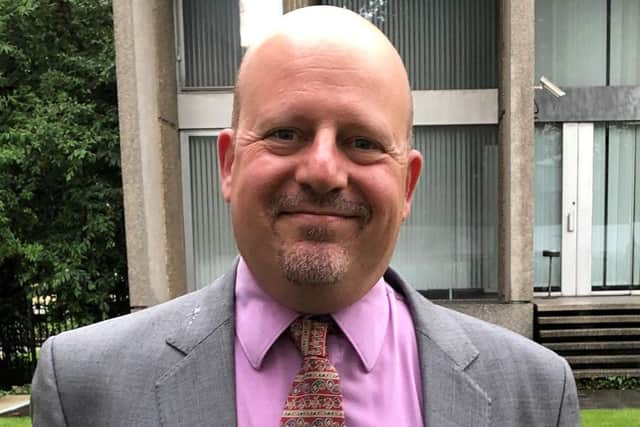Why students in Sheffield are learning to speak Czech - and the impact they're having
It is perhaps not the most obvious choice for students wishing to learn a foreign language. After all, Czech is little spoken outside of the Czech Republic. But at the University of Sheffield, where Czech has been taught for nearly 50 years, people have been taking part in projects that are impacting on families, tourism and the arts in the country.
Whilst learning Czech, students at the university have translated the diary of a Second World War Legionnaire for his English-speaking daughter, helping her learn for the first time about her father’s service.
Advertisement
Hide AdAdvertisement
Hide AdThey have helped two Czech castles translate tour guides, signs, brochures and websites into English to help attract more visitors, worked with a zoo to create an app for English-speaking children to learn more about the animals and translated subtitles for two Czech documentaries, enabling them to be broadcast at the British Film Institute.


Sheffield is one of only four universities to teach Czech in the UK, with most learning it alongside some of the most spoken languages in Europe, such as Dutch, French, German, Italian, Russian and Spanish. Students also study each country’s history and culture, giving them a greater understanding of each nation.
Outside of the Czech Republic there is a shortage of people who can speak Czech fluently and, with major international companies, such as Hyundai, Vodafone and the European energy giant Alpiq having a presence in the Central European nation, there is an increasing demand for people who can speak the language. The university says those who can combine Czech with native-level English and other European languages are highly sought after in business and government.
Professor Neil Bermel, Director of Czech Studies at the University of Sheffield, says: “The UK is widely acknowledged as having a languages deficit: we assume everyone speaks our language and we don’t learn theirs. As a result, British companies are more hesitant to enter foreign markets because they don’t understand them or have the staff who can help them learn to do so.
Advertisement
Hide AdAdvertisement
Hide AdThe Czech Republic currently has the EU Presidency, given to a different EU member state every six months. The Presidency plays a key role in defining the general political direction and priorities of the European Union.
Professor Bermel says: “Czech is a fascinating language that is spoken at the heart of Central Europe. For a language spoken by relatively few people on the global scale, it’s incredibly important.
“The war in Ukraine is also placing increasing importance on the study of Slavonic languages and cultures, as its fallout is having an impact on the wider Eastern and Central European region. Understanding each country’s languages and cultures is going to be crucial as Europe responds.
“For example, our graduates understand instinctively why the reaction to Russia’s invasion has been so visceral and sharp across Central and Eastern Europe: they have lived in countries that were client states of the Soviet Union and suffered invasions of Warsaw Pact troops in living memory.
“They’ve also got the language skills to help with current arrivals from those countries. They’re a real resource to guide the UK through the current crisis.”
